The Piano Lessons
Cecilia Manguerra Brainard
I imagine my parents
sitting on the porch swing, catching the late afternoon breeze while the gardener
swept the lawn. My sister and I played on the teeter totter, tipping back and
forth, bickering and giggling, still in our blue and white school uniforms. I
was six; she was ten. Our two older siblings are not in this picture; they were
off with their friends or in their rooms. My father’s mind was probably on the
construction of our house that he was completing. My mother could have been
thinking of the new piano situated in the room at the foot of the stairs,
adjacent to the living room. Mama had been a music major at the University of
the Philippines where she met my father, an engineering professor who played
the violin.
“I think Nene and Baby should take
piano lessons,” Mama said.
My father, startled from his thoughts
of cement and gravel, railings and posts, glanced at us and remembered when he
and his older brother were younger than us and already studying violin. “Where
can they take lessons?” he asked.
Mama, who had already considered the
matter before this conversation, said, “Bokoy will be good to start with.”
“Why not enroll them with Pilar at
Battig?”
“Pilar’s expensive. The children need
the basics. I could teach them myself but I’m too busy. Besides, it’s difficult
to teach your own children.”
And with that, the decision was made
that my sister (Nene) and I would study piano with a man named Bokoy. I no
longer remember with clarity those piano days. Perhaps we went three times a week,
after school and on Saturdays. Perhaps I
studied for a year or two. This period of my life – three years before my
father died -- was chaotic, and in my mind events blur or run together.
Emotionally however, I feel the demarcation between the periods of Before-my-father-died
and After-my-father-died. Before-my-father-died was a happy, fanciful time of
my life. After-my-father-died was a dark and grim period. It took some time
before I got over the sad stage and learned to be happy and productive.
Before-my-father-died, Papa
drove us downtown for our piano lessons. He owned a red Jeep and a Buick, and even
though we had a driver, my father enjoyed driving us to and from school and
other places. He favored the red Jeep and so I imagine my sister and I sitting
in the back of it, as my father pulled away from our Spanish-style house, away
from the foothills, toward the sea where the downtown area was. It was the
early 1950s. At the age of six I looked at the houses in ruin, at the rubble,
at the pockmarked roads, without really understanding that Cebu was still
rebuilding, still recovering from the Second World War that had sent my parents
and my older siblings to the hinterlands of Mindanao where my father had joined
the guerrilla movement. Downtown Cebu in particular had been bombed during
Liberation when the Americans took back Cebu from the Japanese. Historic houses
and buildings were destroyed, turning the area into a blight. But these images
of destruction were part of my geography, which I accepted as normal.
After leaving the
Capitol area and driving down Jones Avenue and through narrow winding streets,
my father brought us to the house of our teacher, a slender gangly man, in his late
twenties or early thirties. We had lessons on an upright piano in the living
room of his family home. I have no recollection if our piano teacher was strict
or kind. What I recall vividly was walking into his living room one day and
finding him reclining on the sofa with his feet over the piano, and his toes
ran over the keys, playing music. I had a difficult time training my fingers to
stretch and strike the keys in the right way, and here was a man who could use
his toes to play the piano – it was quite a memorable sight.
Bokoy taught us how to
read notes and how to play simple tunes. Since I was a fairly diligent student,
I am sure I practiced on our upright. On this same piano, my mother used to
play classical music with such vigor as to shake the overhead chandelier so the
crystal prisms quivered and sparkled.
Some evenings my parents
played together: she on the piano, he on the violin. We four children sat in
the living room to watch and listen. My father would tune his violin and warm
up. He would make the violin skip in a happy bouncy way; and sometimes he would
make it sound mournful. My mother needed little warming up. She was like that
in real life; my mother rarely hesitated, she was always ready to go. My
mother’s music was much louder, much more energetic, sometimes drowning out my
father’s sweeter and calmer sounds. Those were wonderful times, those home
concerts – nights full of magic, brimming with sweet family ties.
Bokoy organized a piano
recital for his students. He rented an auditorium that was filled with proud
parents and relatives. I wore a blue dress with puffed sleeves and smocking on
the bodice. There were around a dozen students, and I waited my turn in the
back stage. When my name was called I walked out and scrambled up on the piano
stool, my feet dangling and not touching the floor. I don’t recall any mishap
as I played “Skating on the Lake” and “Volga Boat Song.” When I finished, I
hopped off the stool, faced the audience and curtseyed. They clapped and I
walked off stage to give way to another student. The recital was altogether
uneventful.
There was only one piano recital. I
suspect my sister and I became lazy about going to piano practices. “The girls
are not that interested in piano,” my mother may have confessed to my father.
“It’s getting harder to get them to go to Bokoy.”
Remembering the uninspired music we
did on the piano, my father may have said, “They’re busy with homework. The
Belgian nuns are strict.”
And my mother, realizing the hard work
involved to get anywhere with music -- work she had done, and look where she
found herself in -- a housewife with four children, dabbling with a buy-and-sell
business, said, “All right then.” And they let the matter go.
In fact, my sister and I were not
completely devoid of any musical gifts. Not too long after the piano lessons, my
older sister took singing, which didn’t last either. In high school and
college, I played the guitar, not magnificently, but I could strum a few
folksongs. My sister took classical guitar when she was in Spain and she taught
me a few pieces. But the piano was thrust aside. In fact our piano became
silent after my father died. It turned into a piece of furniture displaying on
its top a couple of framed sepia-colored photos of my mother and father.
A few years before my
mother died – and this was decades after the piano lessons -- the same piano we
had downstairs was moved to her room upstairs. By this time, Mama’s hands had
become stiff. Once during a terrible typhoon, she had tried to close a window
and the wind had slammed it shut over her hand, leaving two of her fingers with
a permanent kink, a deformation that made playing the piano difficult. But in
her old age, Mama could still play a few pieces, and she loved to talk of her
past. She started studying the piano at the age of three, she said, missing
precious playtime or the luxury of sleeping in because of piano practices and
lessons. This was at St. Catherine’s in Carcar, Cebu. “I was just a little
girl,” she said, with a coy expression; and if she was sitting on her bed, she
would kick her feet back and forth, like a child.
When she later attended St.
Scholastica College in Manila because of its famed music program, it was the
same thing --- practice, practice, and practice. My mother added that the
German nuns there were very strict; for instance, they insisted she eat all the
(dreaded) potatoes from her plate. Not a scrap of food could be left. She was
not fond of their meals and looked forward to her father’s visit. “He would
bring Jacob’s crackers and English candies,” she said, her eyes lighting up
from the memory.
From St. Scholastica, Mama went on to
the University of the Philippines to major in Music. There she met my father, a
professor in Engineering, a widower thirteen years her senior. My mother used
to play basketball at the university, and the story goes that one day she fell
and my father helped her. I imagine her in baggy bloomers sprawled on the gym
floor, her companions in a dither, and the engineering professor walking over
and taking charge. That was the beginning of their love story, one that
included a dramatic elopement on an airplane because my grandfather disapproved
of my father. The fact was that my grandfather turned away all the suitors of
his daughters, so much so that my oldest aunt had to finally put her foot down
and marry off her younger sisters against the wishes of their father. In my
mother’s case, my father picked her up in Cebu and brought her by plane to
another island where the wedding party was waiting.
Referring to her early morning piano
practices, Mama in her old age reminisced: “For the first time I could sleep in
when I was married.” She added, with a giggle, “I was really lazy.”
My parents settled in Manila where my
father taught. Their two children were born before World War II broke out in
1941 and they had to flee Manila for guerrilla life in Mindanao. Between 1941
until the end of the war in 1945, they did not play the piano nor violin. For
several years after the war, there was no time for music either. The afternoon they
sat out on the patio swing and discussed piano lessons may have signaled the
time to put the War behind. It was time to fill their lives with music again.
Tags: Cebu, Philippines, Sugbo, Filipino, personal essay, Cecilia Brainard, piano #Cebu
Read Also
- Fiction - The Old Mansion Near the Plaza, Novel Excerpt
- Fiction - The Turkish Seamstress in Ubec, by Cecilia Manguerra Brainard
- Fiction - Flip Gothic, by Cecilia Manguerra Brainard
- Fiction - Manila Without Verna, by Cecilia Manguerra Brainard
- Fiction - Winning Hearts and Minds, by Cecilia Manguerra Brainard





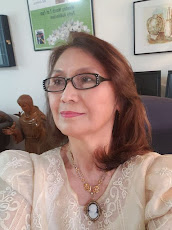

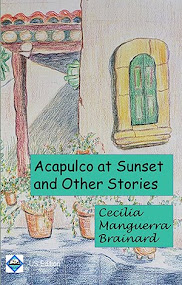



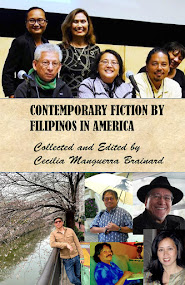
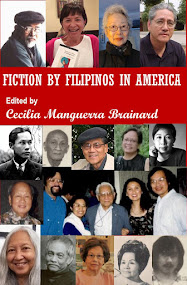



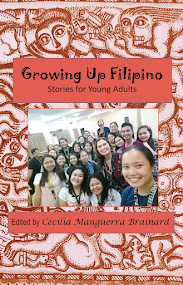
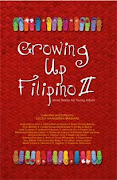


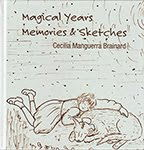


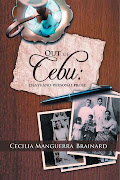

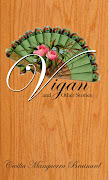

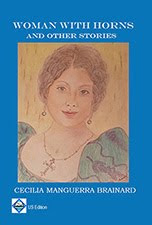

No comments:
Post a Comment